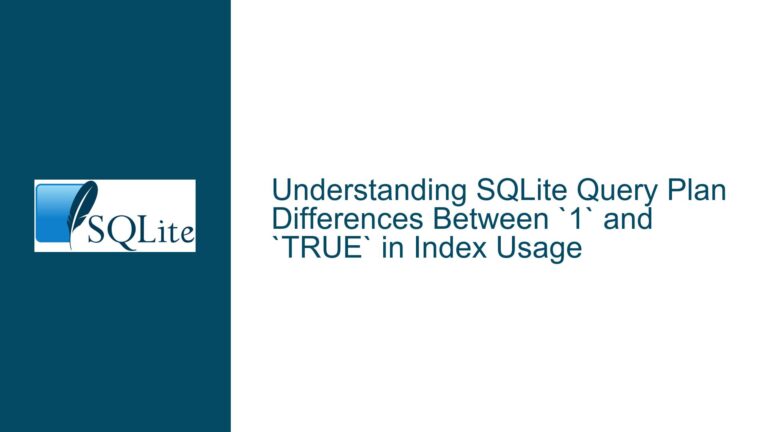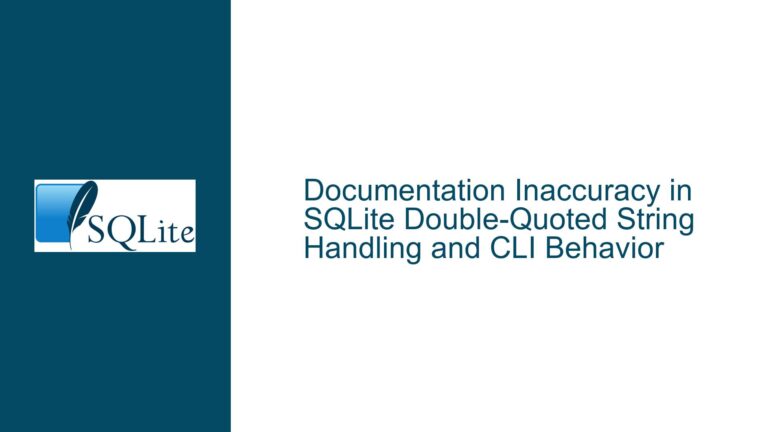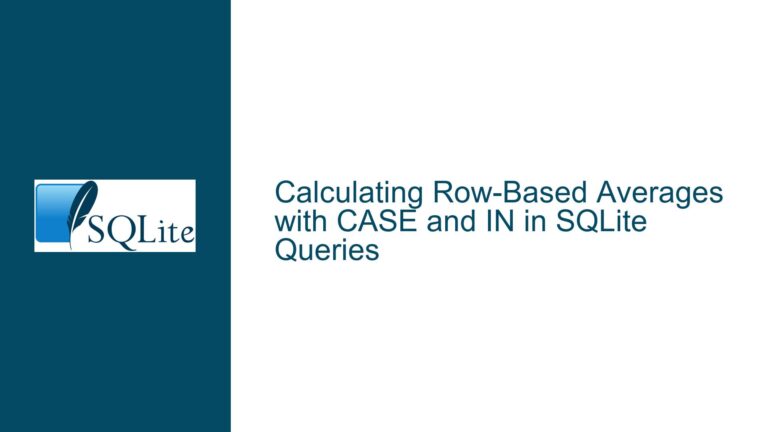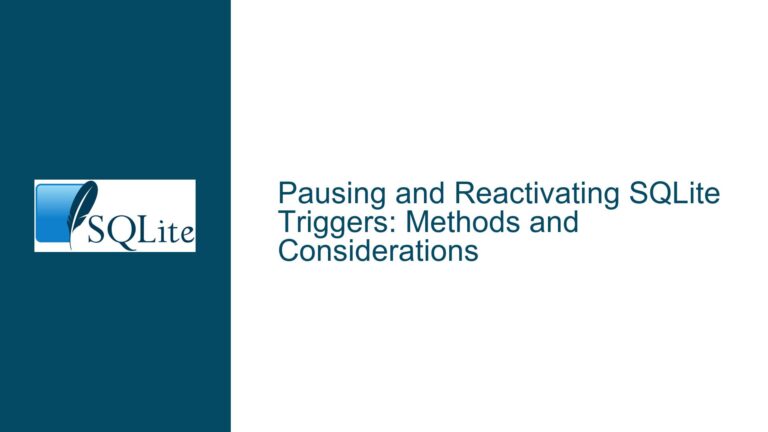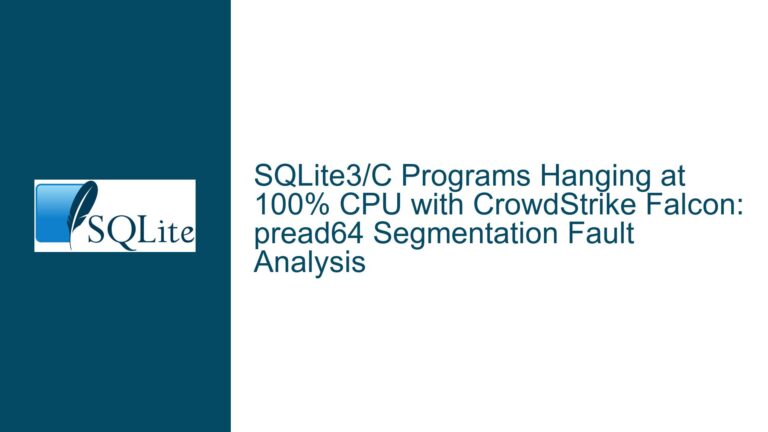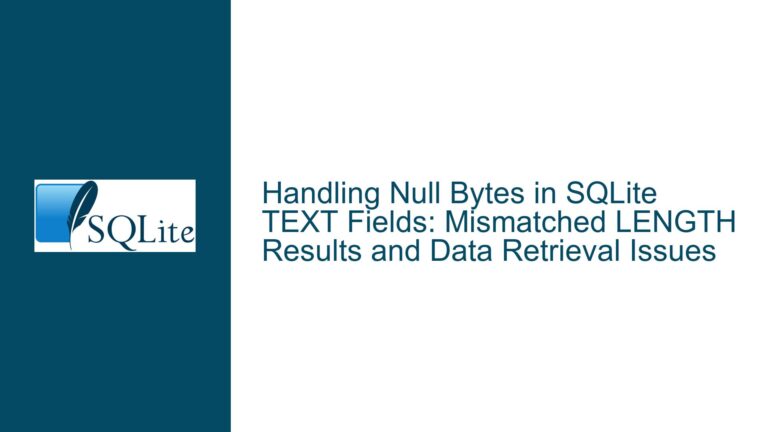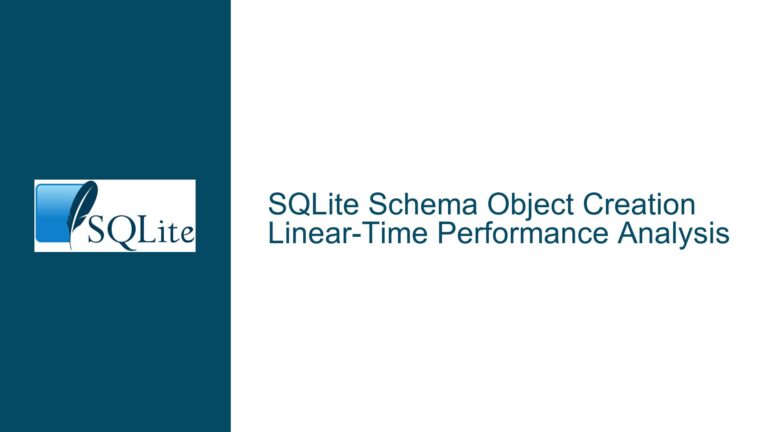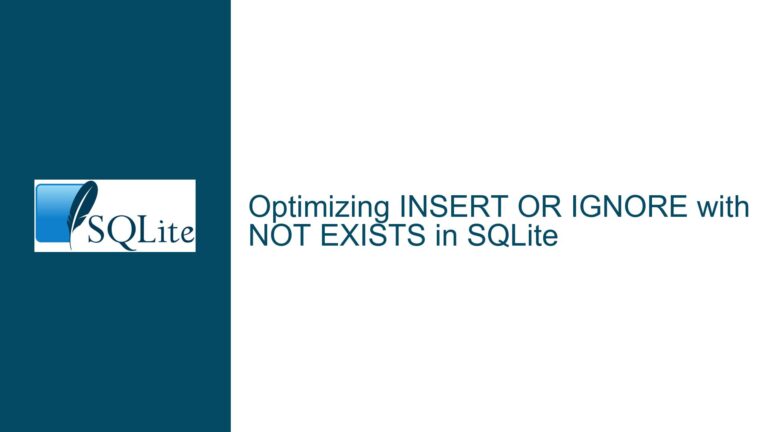SQLite Query Plan Differences Between `1` and `TRUE` in Index Usage
Issue Overview: Query Plan Discrepancies Between 1 and TRUE in SQLite SQLite, a lightweight and widely-used relational database management system, provides a flexible type system where boolean values are represented as integers. Specifically, TRUE and FALSE are treated as aliases for 1 and 0, respectively. However, as highlighted in the provided discussion, there are subtle…
